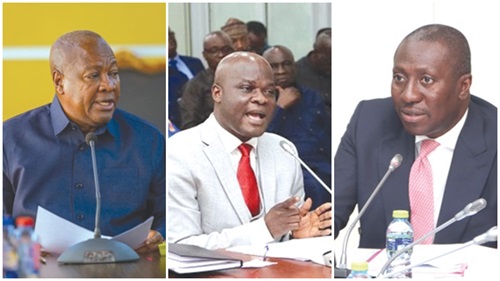On June 18, 2025, President John Mahama said this at a Metropolitan, Municipal and District Chief Executives (MMDCEs) gathering, “You may be the last batch of MMDCEs to be appointed.”
This is a sign that the Mahama Administration will revisit the issue of electing MMDCEs. In 2019, efforts by the previous administration (Akufo-Addo government) were abandoned primarily because the leadership of our two main political parties failed to find common ground on how the election of MMDCEs should be done.
Without finding common ground, former President Nana Addo Dankwa Akufo-Addo was unwilling to risk holding a referendum whose result could defeat his government’s preferred position on how MMDCEs should be elected.
In anticipation of any proposals that may arise to advance the idea of electing MMDCEs, here are some insights and their implications from Round 7, 2017, of the Afrobarometer survey.
Public Opinion
Do Ghanaians want their MMDCEs to be elected?
The answer is an unequivocal yes.
As many as seven out of 10 (69 per cent) Ghanaians agree that MMDCEs should be elected as opposed to being appointed by the President.
There are two important demographic gaps.
First is the partisan gap, where 68 per cent of those who self-describe as NDC support the idea compared to 73 per cent of those who self-describe as NPP.
Second, support levels vary by educational attainment level as follows – a) no formal education (60 per cent); b) primary education (66 per cent); c) secondary education (70 per cent) and d) post-secondary education (73 per cent).
How do Ghanaians want their MMDCEs elected?
The breakdown in 2019 centred on the issue of whether the election should be partisan or nonpartisan.
The ruling party then (NPP) preferred a partisan election where candidates run on the ticket of any of our registered political parties.
The main opposition party then (NDC) preferred the status quo, where political parties are not allowed to sponsor candidates for local elections as per Article 55(3) of the Constitution.
Public opinion is on the side of the NDC position in that Ghanaians prefer a nonpartisan election by a margin of 51 per cent to 41 per cent.
Since partisan differences among the political elites killed the reform efforts, where do partisan citizens stand on this question?
Among NDC partisans, they are equally split (45 per cent-45 per cent) on the question of partisan election of MMDCEs. Among NPP partisans, 49 per cent support a partisan election compared to 41 per cent who support a non-partisan election.
Here is an interesting twist to the preference for non-partisan local elections. Do Ghanaians believe that local elections are non-partisan?
No. From the survey, only 27 per cent believe they are non-partisan compared to 66 per cent who do not believe they are.
So while political parties are barred from sponsoring candidates, it appears that Ghanaians' experience during these elections is that they are not nonpartisan.
Ghanaian public opinion can be summed up as follows: there is a preference for electing MMDCEs on a non-partisan basis, even though the general belief is that these elections are not non-partisan.
Implications for any renewed efforts
If the President and leadership of his party still maintain the NDC position of preference for a non-partisan MMDCE election as expressed in 2019, then there is not much work to be done to bring public opinion along. The public, I assume, will support any efforts by his administration in this direction.
However, it is easier said than done.
Why? Two provisions of the Constitution will need to be amended.
Article 243(1) deals with the President’s power to appoint the MMDCEs.
That is not an entrenched provision and can be done legislatively through Parliament.
The President wields a strong parliamentary majority and, therefore, can count on securing passage to get this done.
But he must strive to avoid a strictly partisan vote, as it may poison the wells of the next phase.
The next phase involves amending Article 55(3), which prohibits political parties from officially sponsoring candidates for local government elections.
This requires a referendum with at least a 40 per cent turnout and a 75 per cent approval of the turnout. For the referendum to succeed, there must be a strong bipartisan turnout and support.
It is why I strongly feel the President must avoid any semblance of partisanship when the process starts.
Prospects?
In my opinion, the current political environment is characterised by a lot of partisan acrimony. It appears there are no incentives for cooperation.
However, I hope the leadership of the two main political parties will be able to build consensus and reconcile their differences on whether the election should be partisan or nonpartisan.
If that can be achieved, this would make it easier to build support among the citizenry who already want this change to our local government, and it will be less burdensome.
Good luck to the President.
The writer is the Project Director, Democracy Project.

